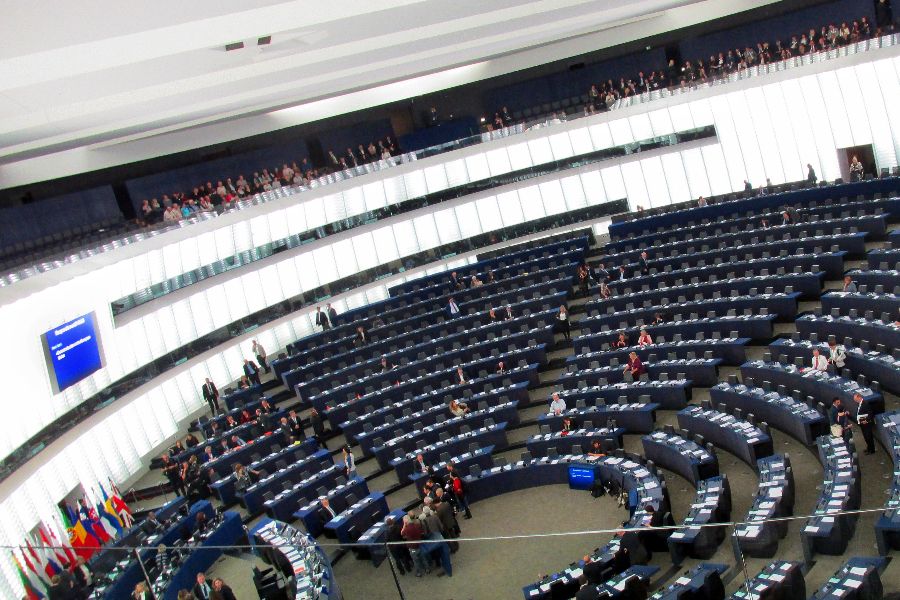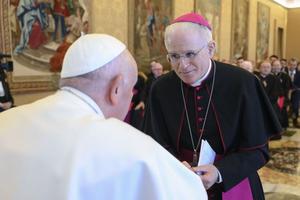Catholic Bishops’ Commission: EU Parliament Resolution on US Abortion Law Is ‘Unacceptable Interference’
The Commission of the Bishops’ Conferences of the European Union (COMECE) criticized the Roe-related resolution.

A Catholic bishops’ commission has criticized a resolution before the European Parliament on the U.S. Supreme Court’s possible overturning of Roe v. Wade.
In a June 8 statement, Father Manuel Barrios Prieto, the secretary general of the Commission of the Bishops’ Conferences of the European Union (COMECE), expressed “surprise” that the European Union’s law-making body intended to discuss “the impact of a leaked draft opinion of the U.S. Supreme Court concerning abortion.”
“This is an unacceptable interference in the democratic jurisdictional decisions of a sovereign state, a country that is also not a member state of the EU,” he said.
“The adoption of a resolution by European Parliament that endorses this interference will only discredit this institution.”
The Spanish priest noted that, “from a legal perspective, there is no recognized right to abortion in European or international law. Therefore, no state can be obliged to legalize abortion, or to facilitate it, or be instrumental to perform it.”
He added: “The EU should respect the legislative competences of its member states and the principle of conferral whereby the Union shall act only within the limits of the competences conferred upon it by the member states in the treaties to attain the objectives set out therein.”
The European Parliament is one of two legislative bodies of the EU, a political and economic union of 27 member states. Earlier this month, a motion for a resolution was introduced on the topic “Global threats to abortion rights: the possible overturning of abortion rights in the U.S. by the Supreme Court.”
The 32-point resolution, due to be discussed on June 8 and voted on a day later, states that the European Parliament “is deeply concerned about the potential consequences for women’s rights worldwide, should the U.S. Supreme Court overturn Roe v. Wade.”
It also expresses fear that the overturning of the 1973 decision that legalized abortion nationwide would have “a chilling effect on prioritizing and funding” abortion lobally.
It says that the parliament “strongly encourages the U.S. government and/or other relevant U.S. authorities also to remove all barriers to abortion services, including third-party consent or notification, mandatory waiting periods and authorization by judges or medical panels, and to guarantee timely access to abortion care across the country.”
The European Parliament voted in 2021 in favor of a report describing abortion as “essential health care” and seeking to redefine conscientious objection as a “denial of medical care.”
The vote was criticized by Catholic groups and Vatican “foreign minister” Archbishop Paul Gallagher.
- Keywords:
- european union
- roe v. wade













